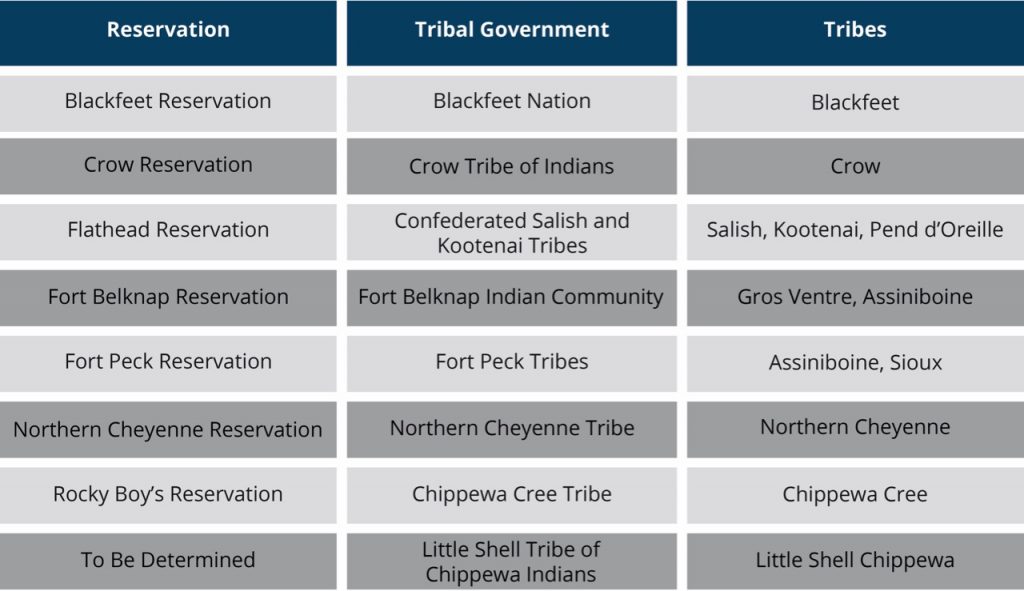This report is part of an ongoing project that introduces readers to foundational topics. Other policy basics in this series will include: citizenship; land; jurisdiction; and taxes in Indian Country. This report focuses specifically on the legal concept of tribal sovereignty.
Sovereign Since Time Immemorial
Sovereignty refers to the inherent right of tribal nations to self-govern their people and territory and to self-determine their futures. The United States did not give tribal nations this right. This means that tribal citizens follow the laws and government of their tribal nation. Tribal nations have been sovereign since time immemorial, long before the United States began occupying this land.
European settlers treated tribal nations as sovereign when they first came to what is now the United States. These early interactions set the stage for future relations. The United States continues to recognize the political status of tribal nations and the legal relationship that this status entails.
The Political and Legal Status of Tribal Nations and Citizens
The political and legal status of tribal nations and citizens do not derive from race or ethnicity. Tribal citizens are citizens of their tribal nation, the United States, and the state in which they reside. The U.S. Constitution recognizes tribal nations as sovereign governments and as having a formal nation-to-nation relationship with the United States.[1]
Between 1778 and 1871, the inherent sovereignty of tribal nations and the United States allowed the parties to enter into more than 370 treaties.[2],[3] U.S. treaties with tribal nations are of the same status as treaties with foreign nations. Treaties represent an acknowledgement of certain rights, not a granting of rights, already held by tribal nations and citizens. Tribal nations reserve all rights they did not exchange in treaties, including the right to self-govern. Unless a treaty or federal policy removed a power or right, the tribal nation is assumed to still possess it. These treaties have no expiration date.
Hundreds of treaties, the Supreme Court, the president, and Congress have repeatedly upheld the inherent right of tribal nations to self-govern and have created a legally binding contract between tribal nations and the United States.[4]
The Federal Trust Responsibility
The United States is what it is today because tribal nations ceded control of millions of acres of land through treaties. In exchange, the federal government guaranteed the continued inherent right of tribal nations to self-govern on their own lands.[5] The United States also declared tribal nations to be domestic dependent nations to whom the federal government has a trust responsibility.[6] This federal trust responsibility: (i) stems from treaties; (ii) protects tribal lands and self-government; and (ii) provides federal assistance, such as health care and education, to tribal nations to ensure the success of tribal communities in perpetuity.[7] The federal government has never fully honored its trust responsibility.[8]
Between 1968 and 2000, Congress enacted policies that favored tribal self-governance and the right of tribal nations to self-determine their futures.[9] Under self-determination and self-governance acts, tribal governments can assume varying levels of control over a variety of federal programs serving their communities, such as health-care delivery. These agreements are referred to as 638 compacts and contracts. Although tribal governments receive some federal dollars for this work, chronic underfunding requires them to supplement program budgets with their own resources.[10] Nevertheless, this function promotes sovereignty and allows tribal nations to leverage their many strengths.
State-Tribal Relations
Because U.S. treaties with tribal nations are made under the U.S. Constitution, they are the “supreme law of the land” and take precedence over any conflicting state law.[11] Moreover, the federal government has authority over Indian affairs, and unless authorized by Congress, state law does not apply in Indian Country.[12] This means that tribal nations have the right and authority to regulate activities on their lands independently from the state. However, the state can and should engage in government-to-government relations with tribal nations as sovereigns. Montana law recognizes this relationship between tribal nations and the state and requires state agencies to follow principles that acknowledge this relationship.[13]
Honoring tribal sovereignty is critical for all of Montana. Tribal nations in Montana represent a core strength of the state, contributing roughly $1 billion annually to the Montana economy,[14] providing quality education and jobs through tribal colleges and universities, delivering essential government services that benefit all Montanans, and so much more.


MBPC is a nonprofit organization focused on providing credible and timely research and analysis on budget, tax, and economic issues that impact low- and moderate-income Montana families.